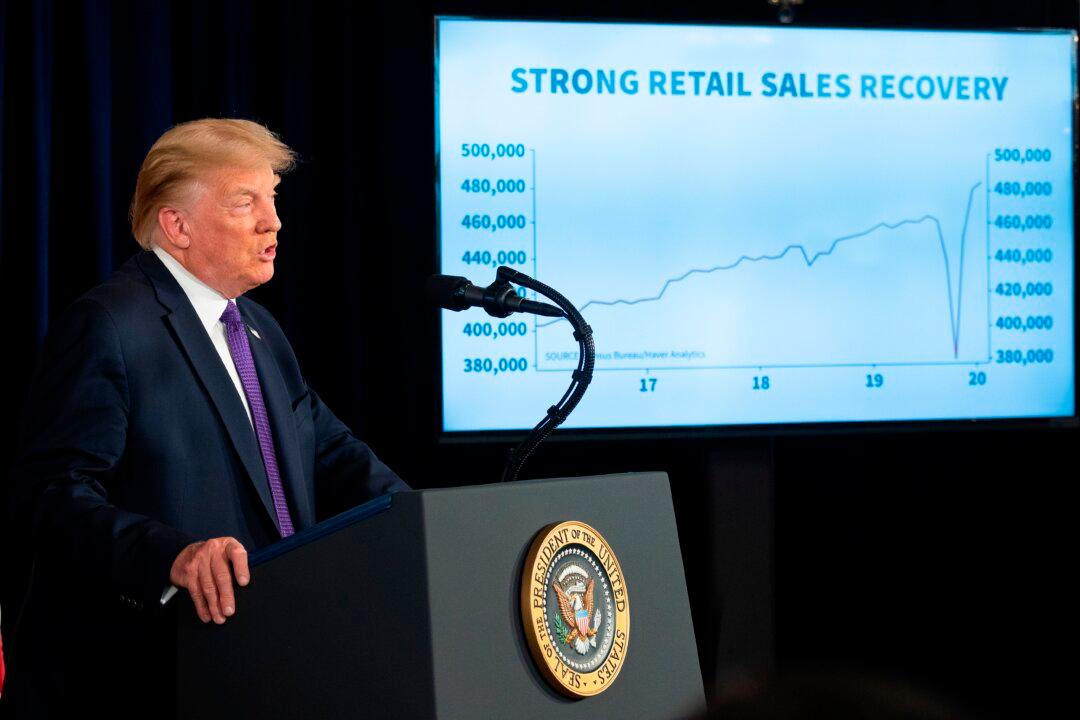WASHINGTON—Retail sales continued to rise in July, surpassing pre-pandemic levels, as part of a rebound that indicates the country’s economy is on track for a V-shaped recovery, according to President Donald Trump.
“We had such a strong foundation that we’re recovering much faster than anybody anticipated. It turns out that it will be a very, very strong V,” Trump told reporters on Aug. 15.





